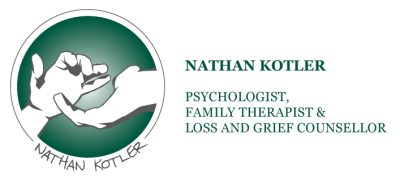A Holistic Approach to Health in Early Recovery: Diet and Nutrition
Aug 27, 2012 – Huffington Post
Maura Henninger, N.D. Naturopathic Physician
When it comes to the health of a recovering addict/alcoholic, the approach of natural medicine can positively alter the course of treatment — and definitively increase chances of getting and staying sober. In the first part of this series, I talked about withdrawal and insomnia, two of the most crucial problems that lead to relapse. I support my patients from several perspectives, encompassing mental, emotional, spiritual and physical. Detoxification, 12-step meetings, group and individual therapy, carefully prescribed medications, and family involvement are all integral to the success of a recovering addict in putting down his drink or drug of choice. But I’ve also found that the proper diet, along with targeted vitamin supplementation, can work miracles in the lives of early recovering addicts and alcoholics.
The link between sugar and alcoholism is not to be denied. The active alcoholic often typically consumes 50 percent or more of his or her total calories in the form of alcohol. Remaining calories are often in the form of junk foods: empty calories that actually deplete the body’s stores of essential nutrients.
Alcohol affects the body’s relationship with nutrition in several ways. First, it influences the cells of the midbrain that regulate sensations of appetite by suppressing desire for food while encouraging alcohol intake. Second, it provides a lot of calories without essential nutrients so energy provided is short-lived and leaves the body without proper nutritional stores to draw on. And third, after the initial rush of energy provided by alcohol, there’s a severe drop in blood glucose levels that leads to fatigue, depression, and loss of energy and the subsequent consumption of more sugar and refined carbohydrates, as well as caffeine, to swing the body’s energy back up. Because of this my patients who are recovering addicts often think they need sugar and caffeine to feel good — to even feel normal.
I encourage a diet free of sugar and all its forms. This is a departure from average recovery wisdom that tells recovering addicts to eat all the candy and ice cream they want. But this kind of sugar consumption leads to prolonged cravings, fatigue, anxiety, hormonal imbalance, diabetes and simply a new form of dependence. To stabilize blood sugar, I have my patients focus on eating complex carbohydrates that take longer to digest and therefore provide longer and more stable sources of energy with fewer cravings. My prescription is frequent small meals to regulate blood sugar: three moderate meals a day with two sizeable snacks in between.
The diet I endorse is 45 percent carbohydrate, 30 percent fat and 25 percent protein. The best complex carbohydrates grains are: brown and wild rice, oats, amaranth, millet, spelt, beans, and lentils. People often don’t think of vegetables and fruits as sources of complex carbohydrates but they are some of the best we have available. All of this fiber helps cut alcohol cravings, as well.
For my patients, I can’t stress the importance of protein enough. Proteins helps the body repair tissue and the alcoholic/addict needs this in abundance to help restore organs affected by chronic abuse including the liver, pancreas, kidneys, heart, and brain. Protein is also necessary for blood sugar stabilization. Eggs, lean red meats, chicken, fish, and turkey are all to be eaten in abundance. Nuts are the protein snack of choice among my patients. Proper and adequate intake of fats is essential for absorption of vitamins and nutrients and for cellular repair. Olive oil, flaxseed oil, coconut oil, butter, and avocado are good sources. These oils are vital, too, to provide essential fatty acids. Deficiency of these leads to a host of problems, particularly for the recovering alcoholic, most notably depression.
Because it overstimulates the nervous system causing increased anxiety and insomnia, caffeine consumption is to be minimized if not completely eliminated. I ask my recovering addicts and alcoholics to try herbal coffee substitutes like Pero or Cafix to get the taste fix. If elimination is impossible, I recommend no more than two cups of caffeinated beverages per day. Decaffeinated coffee, which still contains some caffeine, is preferable.
I urge people in recovery to eat nothing artificial to ease the load on the liver, which has to struggle to break down chemicals and preservatives. Foods should be in as close to their natural state as possible. I have found great success in cutting alcohol cravings by eliminating common food allergens, most notably wheat and dairy.
B vitamins are essential during detoxification from alcohol and drugs. Supplementing with vitamin B1 (thiamine) is essential, ensuring proper brain function and decreasing fatigue, brain fog and poor memory. Wernickie-Korsakoff syndrome, or alcoholic encephalopathy, is a pronounced form of thiamin deficiency. Research has shown that vitamin B3, or niacin, helps alcoholics detox from alcohol. Vitamin B5, or pantothenic acid, helps support adrenal function and also helps rid the body of alcohol. For the recovering alcoholic suffering from insomnia and anxiety, vitamin B6, pyridoxine, is crucial for the production of serotonin and melatonin. Commonly, I give my recovering addicts/alcoholics a high quality B-complex supplement, along with vitamin A and vitamin C, which they are usually deficient in.
It’s my goal, as a doctor, to facilitate a physical recovery so that the emotional, mental, and spiritual aspects of recovery have a better chance of succeeding. Food is a crucial medicine in restoring this balance of health. The sooner a newly-sober person feels great, I’ve found, the sooner he or she will begin to accept a life free of crippling attachments to substances — the life they are truly are meant to live.
Leave a reply
